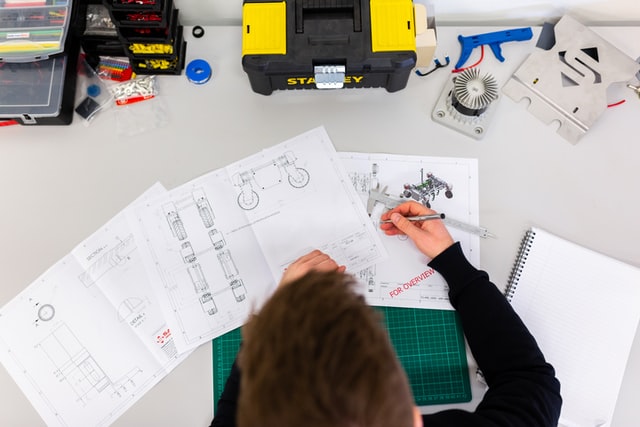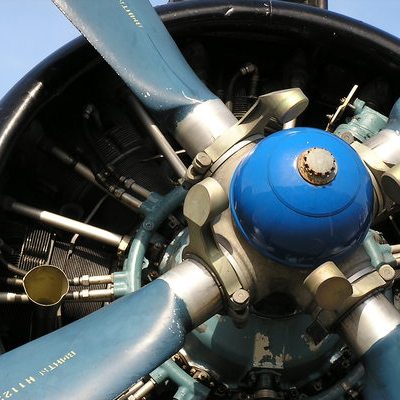For a little while, I have been trying to find a way to concisely describe the various disciplines contained within the engineering profession, and it is proving more difficult than I could have imagined. Having a brother who is a Chemical Engineer has nudged my interest in the field of engineering as a whole for many years. It seems, though, that the field of engineering in general has been growing exponentially since the advent of the world wide web and as the requirement for faster and more efficient computers, as well as society’s needs, has become more demanding.

For the purposes of this article, I wanted to look at just five different types of engineering, without leaning specifically on just one aspect of this profession.
Explaining the term ”engineering” in two sentences …
Evan McDowell: Talent Acquisition Manager of the company Austin Nichols Technical Search, explains, very succinctly, that: “The distinctions between each branch of engineering prove that the term “engineer” means different things in different contexts. While some engineers battle with manufacturing woes, others are responsible for things like road construction and food processing.”
Mechanical Engineers have the responsibility for the design and manufacture of both products and power-producing machines, including electric generators, steam and gas turbines and internal combustion engines. They are also responsible for machines which use power, such as refrigeration and air-conditioning systems. They assist in buildings with the design and mechanics of elevators and escalators. In addition, they are responsible for the creation of microscale sensors, car parts and even spacecraft. To become a mechanical engineer, you need to have strong problem-solving and analytical skills as well as a large measure of creativity to convert ideas to reality through design and development. The mechanical engineering field includes disciplines such as automotive, robotics, aerospace, computer-aided design (CAD) and nanotechnology, amongst others.
Electrical Engineers concentrate on electric-powered technology, working on electrical components, devices, and systems. Their expertise ranges from microchips to power station generators. Thomas Edison, the inventor of the electric light bulb, was an electrical engineer. Inventions such as radios, television, batteries, various electronic machines and devices, motors and power generators were brought into being by these engineers. The design, development, testing and production supervision of the above items all fall within the remit of the electrical engineer.
Industrial and Systems Engineering is a complex mixture of mathematics, engineering and scientific methods employed in the design of equipment, buildings, and information systems and networks. They work across nearly all sectors of activity, notably logistics, manufacturing, energy, finance, healthcare, entertainment, production, transportation and telecommunications. Their task is to optimize complex processes, networks and systems within these sectors, and apply critical decision-making, analytics, design, planning, interpersonal communication, quality control, operations management, computer simulation, and problem-solving skills in devising efficient systems which integrate all aspects efficiently in producing a product or service. You will probably find engineers in offices, on problem sites such as factory floors, or working on computers with data they have compiled to find answers in areas where improvements are required.
Chemical Engineering is that branch of engineering which solves practical technical problems in the processing industry through knowledge of chemistry combined with math, economics, and physics. Simply put, chemical engineering concentrates on turning raw materials into useful, higher economic value products including clothes, medicinal drugs, food and drink, energy supplies, etc., whilst assisting in the management of the earth’s resources and protecting the environment. A chemical engineer typically has technical knowledge in the areas of chemistry, biochemistry, engineering, materials science and information technology, as well as education in economics, safety, management and the environment. These skills are used for the manufacturing of petrochemicals, explosives, various chemicals, fertilizers, cement, plastics, polymers, paper, pharmaceutical products and medicines, dyes and many foods. The mining industry also relies on chemical engineers to recover valuable minerals from raw ore. They are often tasked with the development of new or adapted substances and materials.
Civil engineers belong to one of the oldest types of engineering in the world. They are responsible for roads, railways, bridges, dams, airports, tunnels, buildings and, ultimately, cities themselves. It is civil engineers who create the groundwork for essential services and systems such as water and energy supply and usage, sewage treatment, waste networks and flood defences. In short, civil engineers conceive, design, build, supervise, operate, construct and maintain major infrastructure projects and systems in the public and private sectors. Civil engineers also work with architects in creating the world’s most awe-inspiring buildings, i.e., the Sydney Opera House, the Shard in London, and bridges such as China’s Jiaozhou Bay bridge. There are different specialisms which fall under the civil engineering umbrella, including structural, municipal, transport, environmental and geotechnical.
Further advancements in engineering are inevitable
There is so much opportunity and challenge in the engineering field, and it is advancing all the time. Who knows what will come next? Whatever it is, I’m sure that engineers of all kinds will be called upon and be more than up to the challenge!

